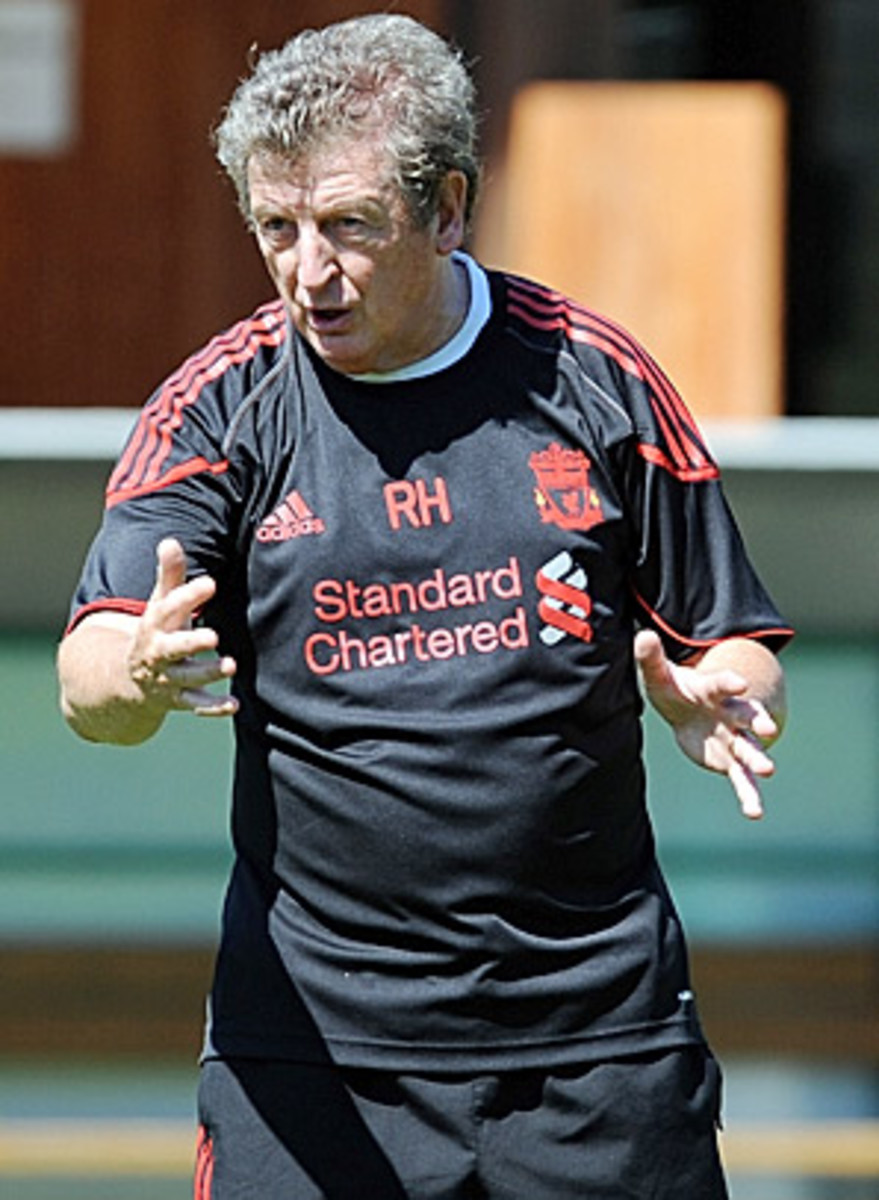For Hodgson, success won't come easy in his step up to Liverpool
In his first months at Craven Cottage, Hodgson improbably saved Fulham from relegation. Then he took the club into Europe and, last season, led it on an unlikely run to the Europa League final, beating such luminaries as Shakhtar Donetsk, Juventus and Wolfsburg. Frankly, it wasn't going to get any better than that. A major vacancy opened at just the right time, Liverpool appointed him and, finally, at 62, Hodgson has his chance with one of the giants of the English game.
That Hodgson is a far better manager than he was given credit for in England until about 18 months ago is indisputable, but that is no guarantee he will be a success at Anfield, and not just because of the boardroom problems that continue to afflict the club.
Only four men have managed two different sides to the English league title: Tom Watson (Sunderland and Liverpool), Herbert Chapman (Huddersfield Town and Arsenal), Brian Clough (Derby County and Nottingham Forest) and Kenny Dalglish (Liverpool and Blackburn Rovers). Which, among other things, suggests that managerial skills are not easily transferable, that a manager who functions well with one group of players in a particular environment may not be equally successful with different players in a different environment. It's worth noting, given the impatience of modern football, that Watson and Chapman were in their fifth seasons before winning a trophy, Dalglish was in his fourth and Clough's first season at both Derby and Forest ended with the club in mid-table in the Second Division. Adjustment takes time, and Liverpool -- both fans and board -- must afford Hodgson the same patience it showed Rafa Benitez.
And then there is the issue of the change of level. Just because you can successfully manage a moderate team on a budget does not mean you can handle superstars and their egos.
"You can be a very good manager of a corner shop," former Manchester City player and director Dennis Tueart said, "but that doesn't mean you can run a multinational. It's a different skill set."
Hodgson, with his gentlemanly manner, gives the impression of being old enough and wise enough to make the change, but the concern must be that his style of play is rooted in organization. He was an early devotee of Allen Wade, the technical director of the Football Association who revolutionized coaching in England in the late 1960s, breaking down the game into its component parts and systematizing it.
Since he first took charge of the Swedish club Halmstad in 1976, Hodgson's method has remained essentially unchanged: 4-4-2 with zonal marking, looking to counter with long diagonals out of defense, and a profound belief in maintaining a disciplined defensive structure. Everybody, of course, talks about keeping the shape, but what has made Hodgson's teams better at doing it than most is practice.
"We work on it every day," Fulham midfielder Simon Davies said last season. "Every day in training is geared toward team shape. I've been working with the manager three seasons now and every day is team shape, and it shows."
The problem is, it's boring.
"We have a little laugh about it now and again," Davies said, "but when he [Hodgson] came in, we were fighting relegation and [he took us to] the Europa League so you take it. If you're going to play for him, you've got to put a shift in and perform, work to a system and be tight defensively. I don't want to give any secrets away, but he gets the 11 that he wants and he drills everything in that he wants. We've got the ball -- it's never unopposed. It's certain drills defensive, certain drills attacking and we work very hard at it. There are no diagrams, it's just all on the pitch. We do a lot of work after every game on analysis, sorting the bad things out, sorting the good things out."
Which raises two issues about Hodgson at Liverpool. First, assuming Steven Gerrard stays, how will Hodgson cope with a player who has always been frustratingly carefree, always prone to attempt the Hollywood pass, always bombing on rather than holding his position?
In watching Germany's Bastian Schweinsteiger during the World Cup, it was hard not to see the player Gerrard could have become with a little more tactical discipline. Benitez ended up despairing of him to the extent of turning him from box-to-box midfielder into a forward.
And second, will players at a club like Liverpool be prepared to put in constant grinding work on the training field? They reportedly chafed at the controlling nature of Benitez's personality; how different will Hodgson be? At first, probably, they will respond, partly because of the novelty of a new manager and partly because they remain chastened after a seventh-place finish last season, but the long term is less clear.
Fulham's players, as Davies admitted, succumbed to Hodgson's regimen because for them the Europa League was unimagined glamour; Liverpool's players may start wondering whether it may not be more fun at Manchester City or AC Milan or Valencia. And that's without even asking the question of how far disciplined football can take a side. To seventh, yes, as Fulham proved; to fourth, perhaps? To second, to first? It may be that to reach highest rungs, the discipline must be leavened by the sort of flair Fulham conspicuously lacked.
Then again, Hodgson is an astute man, and must be aware of the potential problems. Whether he can find solutions, though, is unclear, and that is the gamble Liverpool has taken. With a restricted budget, boardroom turmoil and a manager feeling his way in a new environment, though, nobody should expect results too soon.
Jonathan Wilson is the author of Inverting the Pyramid; Behind the Curtain; Sunderland: A Club Transformed; and The Anatomy of England.





